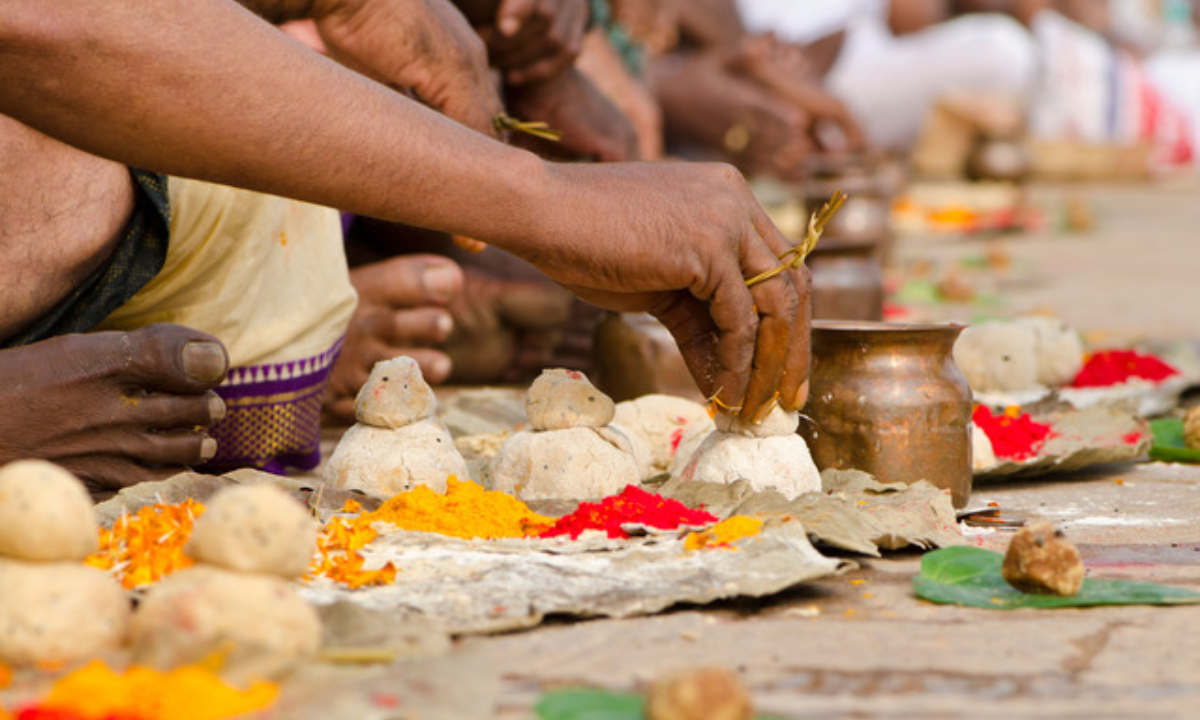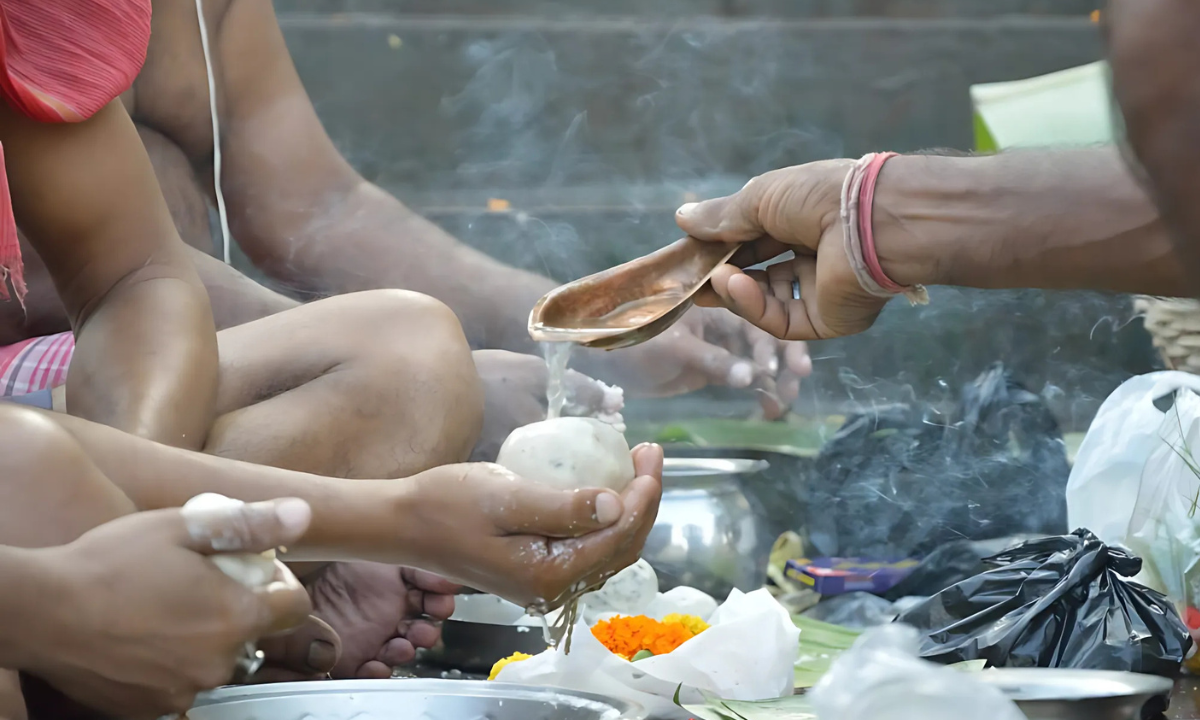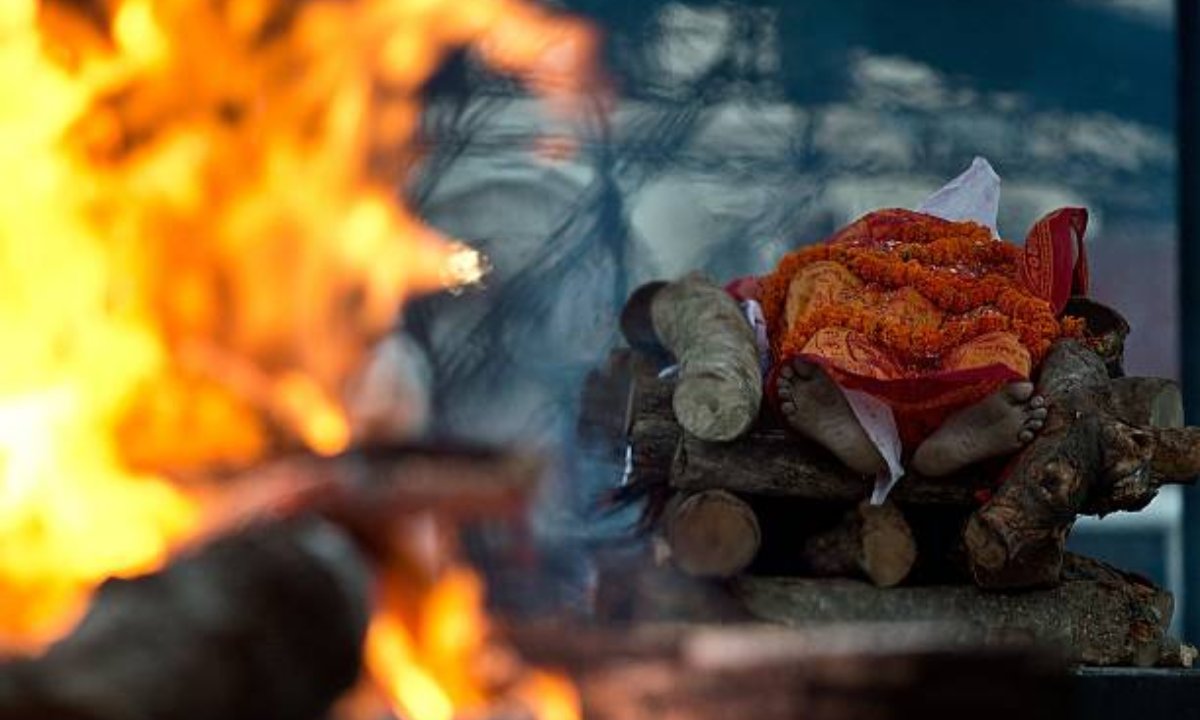It can always be difficult to cope with losing a loved one. In many places, farewell rituals are unique to each culture and have been kept through the years. The presence and leadership of a holy man, known as a Pandit, are very important in the Indian farewell ceremony. The Pandit’s role during a funeral is to offer support, direction, and help guide the family through one of the hardest challenges in life using traditions.
What is the role and importance of a Pandit?
Among the Hindu community, a Pandit has great respect because of their knowledge of scriptures, traditions, and rituals. It is believed that a person must be present during Hindu death rituals to do all the ceremonial duties described in sacred writings. Adhering to this advice helps both the family and the deceased as it honors the soul and allows tradition to comfort them. The Pandit acts as a source of calmness, which helps the family handle the important rituals with ease.
Funeral Rites: Tradition and Spiritual Significance

Such rites in Hinduism ensure that the soul peacefully travels from our world to the afterlife. These rites add meaning to the religion, beliefs, and culture of India. The Pandit should do these ceremonies sincerely, precisely, and with proper understanding, so that all their duties are performed as they should.
At first, the Pandit directs the family to follow particular practices, like giving the body its final bath, dressing it with new clothes and flowers, and smearing the forehead with a special design. All the actions play a role: they let people say goodbye, express respect, and help the soul continue its journey. Because of his deep wisdom, the Pandit preserves the respect for these practices and changes the feeling of loss into one of spiritual improvement.
How a Pandit Helps in Hindu Funeral Rites
The Pandit begins his duties from the time of death through the immersion of the ashes into the holy waters. We should take a look at the main points in his career where he had the most impact:
1. In the beginning, there are prayers, and different people get prepared.
The family calls the Priest as soon as a person has passed away to the arrangements for the funeral. The Pandit prayers begin and instruct the family on how to clean the area and care for the body. While chanting, the priest assures the family that life is short and they need to stay calm through faith.
2. Going to the Crematorium
Pandits manage the final rites at home and also go with the dead body to the place of cremation. At every step of the way, he keeps reciting verses and explains the family’s involvement in the rituals. Each chant has meaning for him, and he uses the traditions to show how age-old customs can help current issues.
3. The ceremony to bid a last farewell
You could say that the hindu cremation ceremony is the most significant part of the funeral rites. The Pandit instructs the eldest mourner on how to start the fire of cremation. He makes sure to read mantras, dot the chief offering, and recite the latest prayers during the ceremony. Practices outlined in ancient texts support someone in achieving freedom from earthly matters—moksha.
4. Post-Cremation Rituals
However, the Pandit’s part does not finish when the funeral is over. He is involved in all of the family’s traditions after the cremation, which can go on for 10 to 13 days. As a part of this, the family performs “Shradh” and “Asthi Visarjan” so that the departed continue to receive blessings and the family gets peace.
Extending Help to Families After the Ritual
Even though rituals are based on the scriptures, the Pandit’s work goes much further than just chanting and praying. He helps families who have lost someone by telling about their loved ones, sharing teachings, and drawing on the wisdom recorded in old writings. What most families tend to recall from these experiences is the spiritual and emotional help.
Because of how people live in big cities, there is now an increased need for organized funeral companies like Funeral Services in Bangalore. Apart from managing worship, the Pandit assists in dealing with the city and helps families handle their needs, too. Being able to blend tradition and modern ideas brings even more importance to Pandit’s role.
Showing Respect for Various Differences
There are many ways to observe death rituals in India, as they change from one region to another, from one group to another, and from one family to another. Nevertheless, Pandit modifies their practices to uphold religious sentiments and follow modern ways. Wherever it is, whether at someone’s home or during a funeral event in the city, the Pandit uses ancient knowledge along with understanding.
Because of moving and new ways of life, many families are not aware of the whole process of Hindu death rituals. The Pandit makes sure they explain everything clearly, helping the rituals keep their true significance no matter where or when they are performed.
Priest for Funeral: Upholding Old Traditions
Nowadays, the job of the Priest at a funeral is especially significant. Because our lives are so busy and full of technology, we sometimes don’t understand what the right thing to do is in these delicate moments. Tradition is continued in families because of the information and support offered by the Pandit.
The Pandit makes certain that each ceremony of the funeral ritual is carried out gently and compassionately. He helps soothe our hearts, unites groups, and honors people who have died.
Conclusion
All in all, it is about realizing that a Pandit at a funeral maintains balance by mixing religious beliefs, age-old customs, and linking with the deceased’s loved ones. Using his wisdom, the last goodbyes feel respected, meaningful, and rewarding for everyone left after the ceremony. Wherever they serve, whether in a small village or near Bangalore, Pandits provide peace, respect, and faith to guide families in the wake of a funeral.
Beleiv offers funeral services in Bangalore, centering on making arrangements that suit the preferences of families and providing their loved ones with a worthy and honorable farewell.




